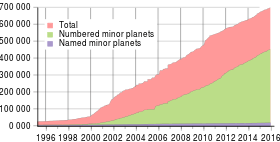
Evolution (Baxter novel)
Evolution is a collection of short stories that work together to form an episodic science fiction novel by author Stephen Baxter. It follows 565 million years of human evolution, from shrewlike mammals 65 million years in the past to the ultimate fate of humanity (and its descendants, both biological and non-biological) 500 million years in the future.
Plot summary
The book follows the evolution of mankind as it shapes surviving Purgatorius into tree dwellers, remoulds a group that drifts from Africa to a (then much closer) New World on a raft formed out of debris, and confronting others with a terrible dead end as ice clamps down on Antarctica.

Evolution (Nektar album)
Evolution is the tenth album by progressive rock band Nektar, released in 2004. It was the first Nektar album since 1977's Magic Is a Child to feature original drummer Ron Howden, who rejoined other founding members Roye Albrighton and Taff Freeman.
Track listing
Personnel
External links
References

Xcalibur (ride)
Xcalibur is a spinning thrill ride at Six Flags St. Louis, that opened in Spring 2003.
History
Before being built at Great Adventure, Xcalibur was used in carnivals in Europe.
Six Flags Great Adventure (1999-2002)
Xcalibur was announced at Six Flags Great Adventure as Evolution, for the 1999 season along with 24 other attractions, known as War on Lines. Evolution was supposed to be built in Movietown but later the ride was built where Fantasy Fling was located in the Fantasy Forest section of the park. Before it opened the ride went through rigorous testings and state inspections. Since Evolution opened the ride faced multiple problems with operations on the control panel that few can operate. Just after four seasons at the park Evolution was removed and relocated to Six Flags St. Louis. Currently the new Fender Benders (bumper cars) are currently being constructed at the former site of Evolution and opened in Summer 2012.
Six Flags St. Louis (2003-present)
Evolution was relocated to Six Flags St. Louis and opened at the Missouri park in Spring 2003 as Xcalibur. During the relocation Xcalibur received a better control panel than before and enhanced Medieval theme elements. Also each of the 16 gondolas received a sound system where the ride operator can talk during the ride and play theme music. The ride is currently operating.

Minor planet
A minor planet is an astronomical object in direct orbit around the Sun that is neither a planet nor exclusively classified as a comet. Minor planets can be dwarf planets, asteroids, trojans, centaurs, Kuiper belt objects, and other trans-Neptunian objects. The orbits of 692,604 minor planets were archived at the Minor Planet Center by 2015. The first minor planet to be discovered was Ceres in 1801.
The term minor planet has been used since the 19th century to describe these objects. The term planetoid has also been used, especially for larger (planetary) objects such as those the International Astronomical Union (IAU) has called dwarf planets since 2006. Historically, the terms asteroid, minor planet, and planetoid have been more or less synonymous. This terminology has become more complicated by the discovery of numerous minor planets beyond the orbit of Jupiter, especially trans-Neptunian objects that are generally not considered asteroids. Minor planets seen releasing gas may be dually classified as a comet.
Podcasts:

